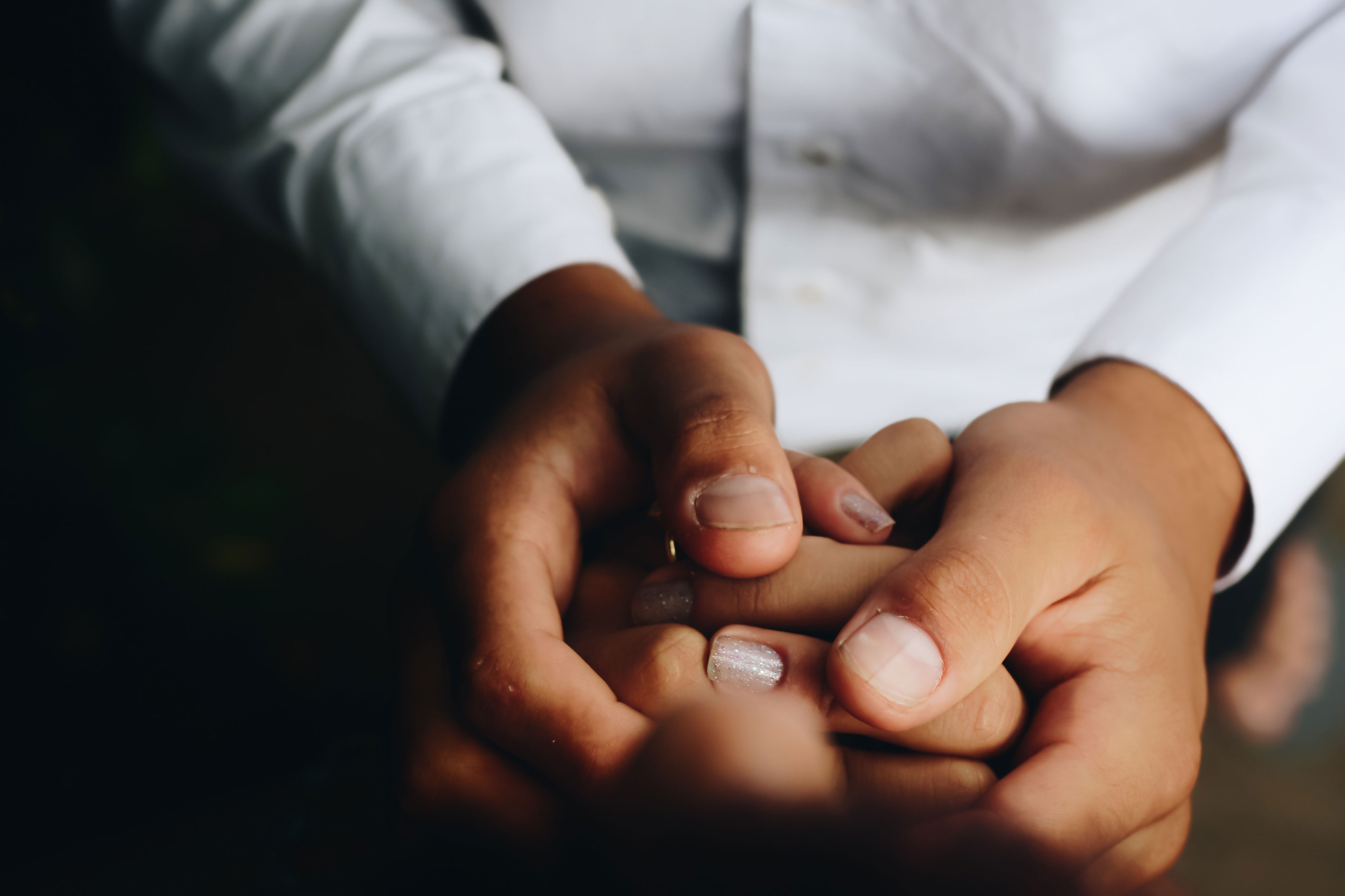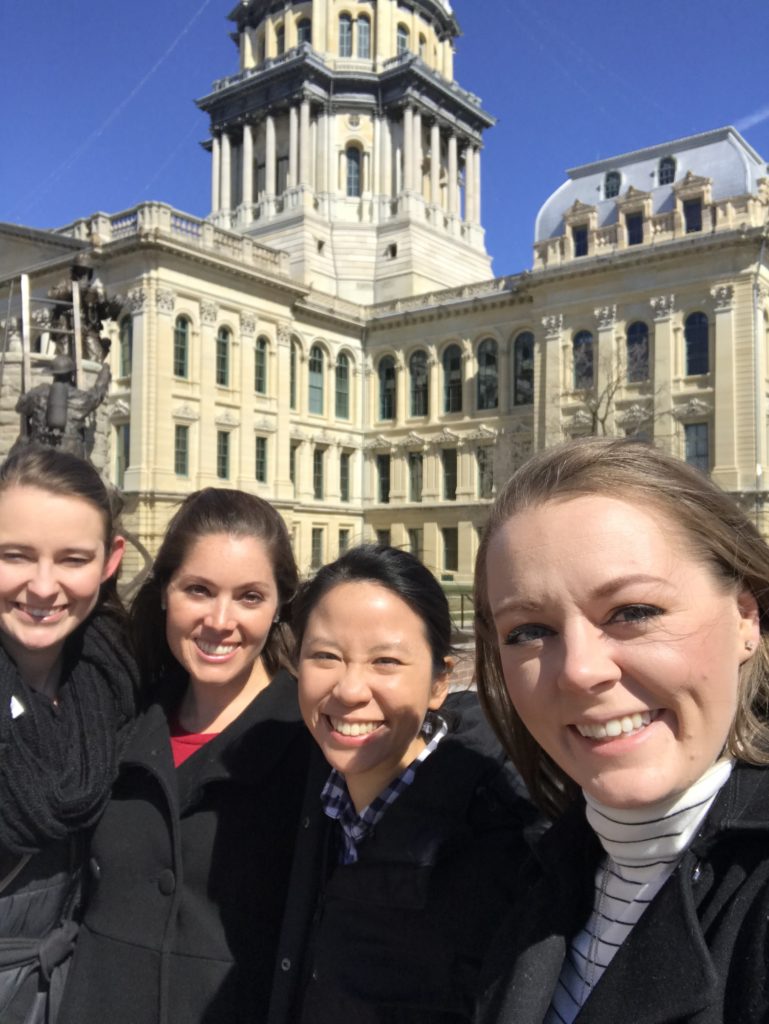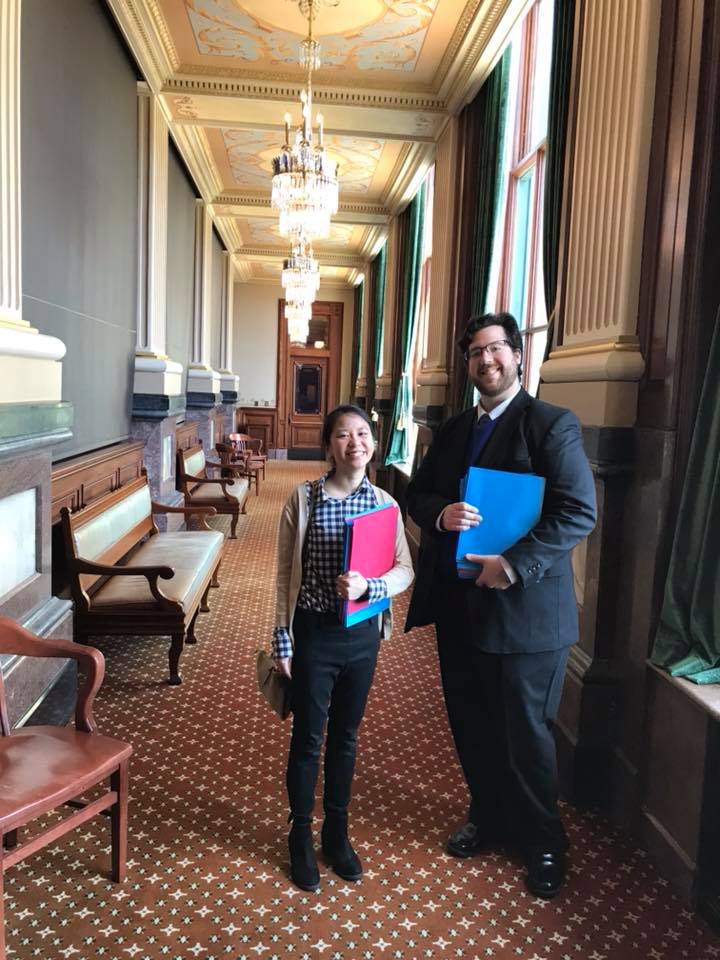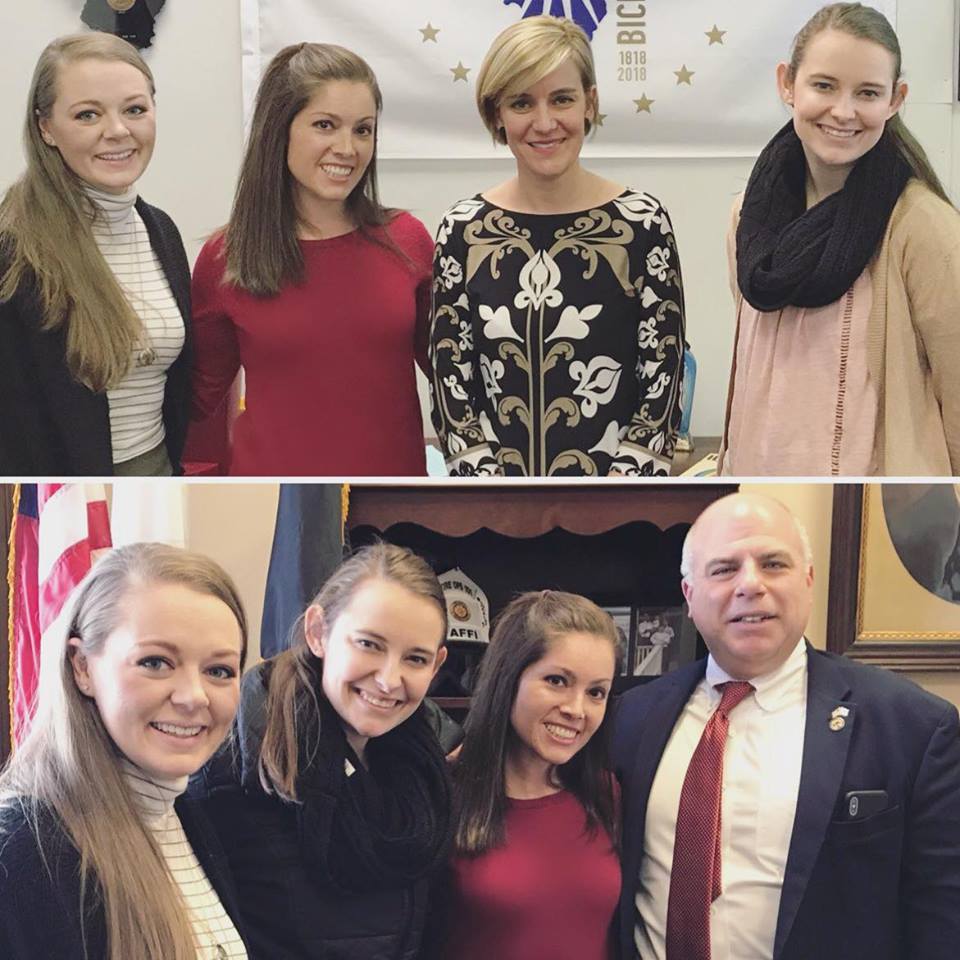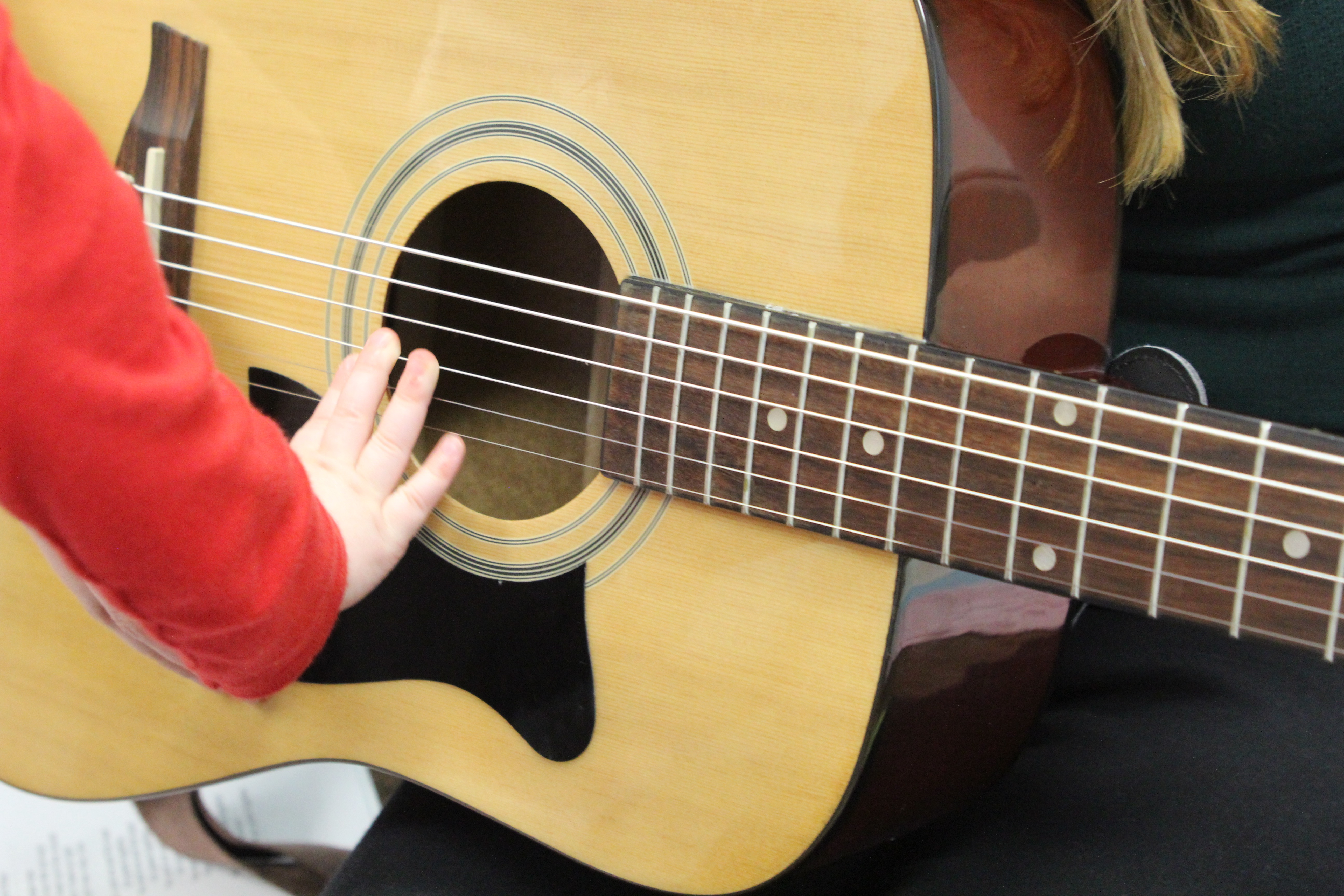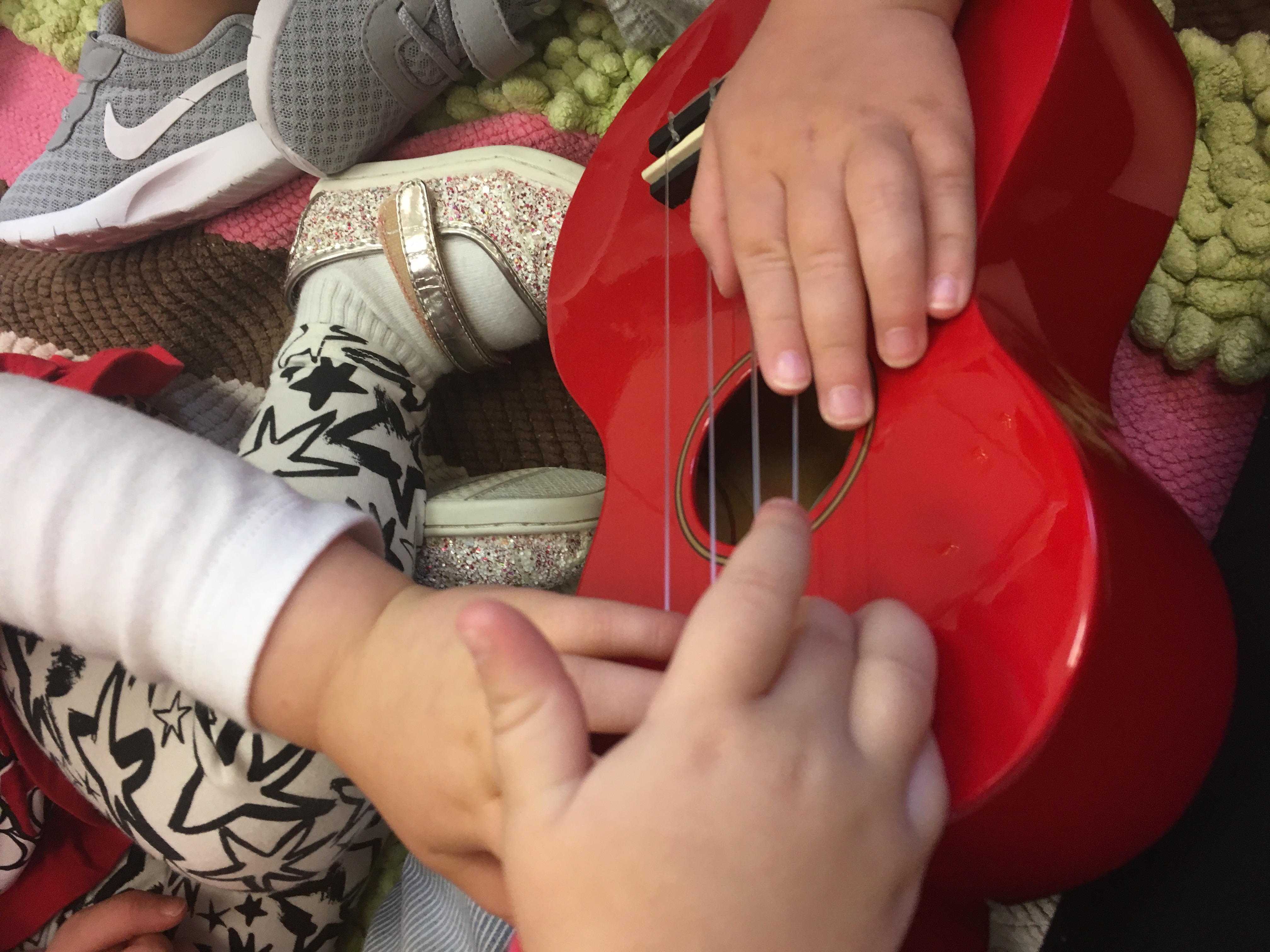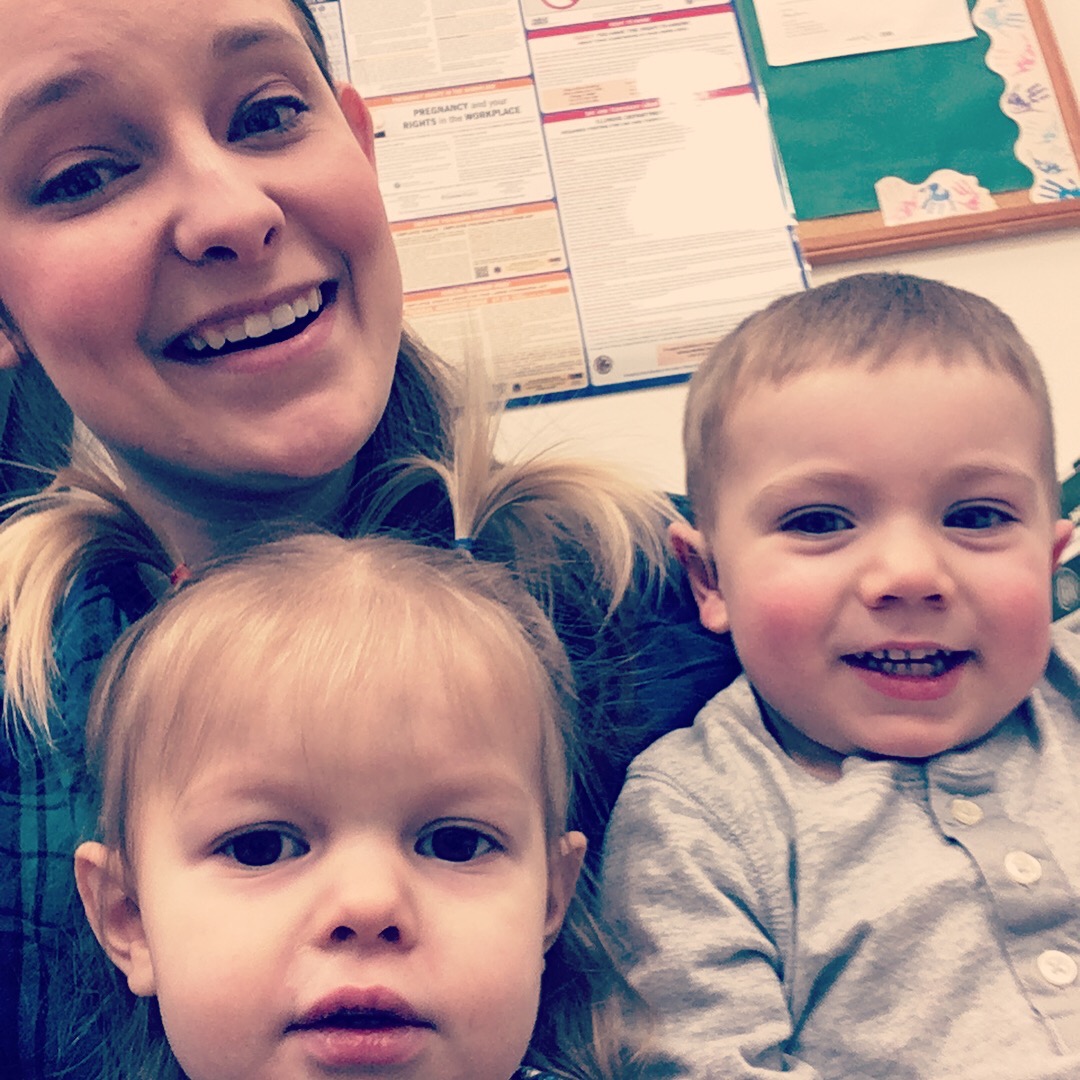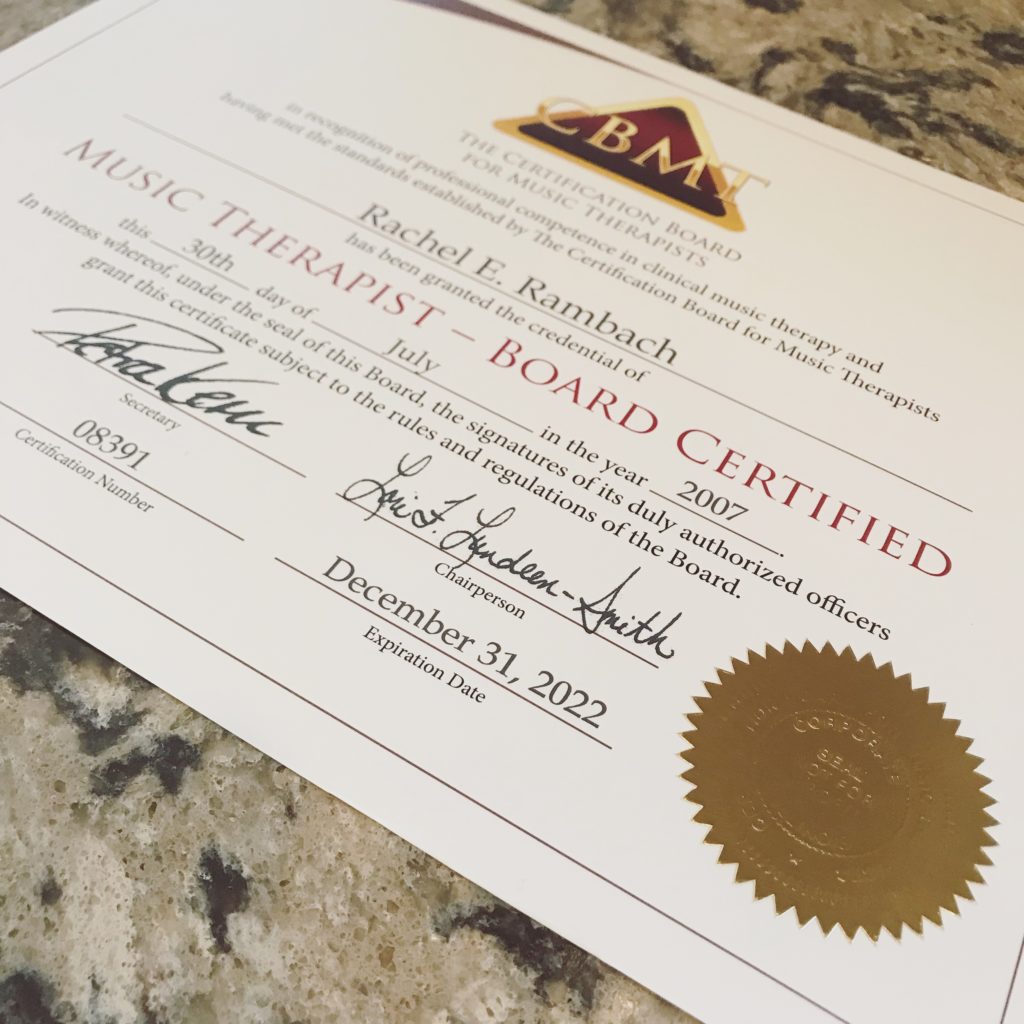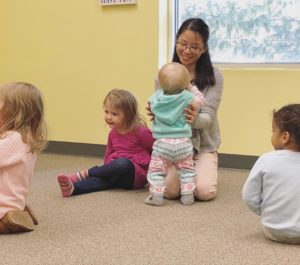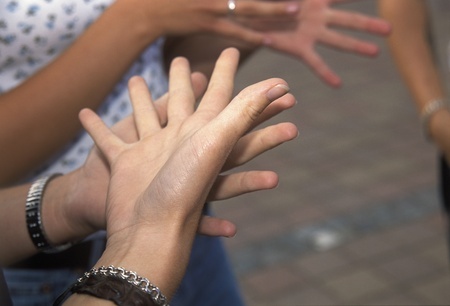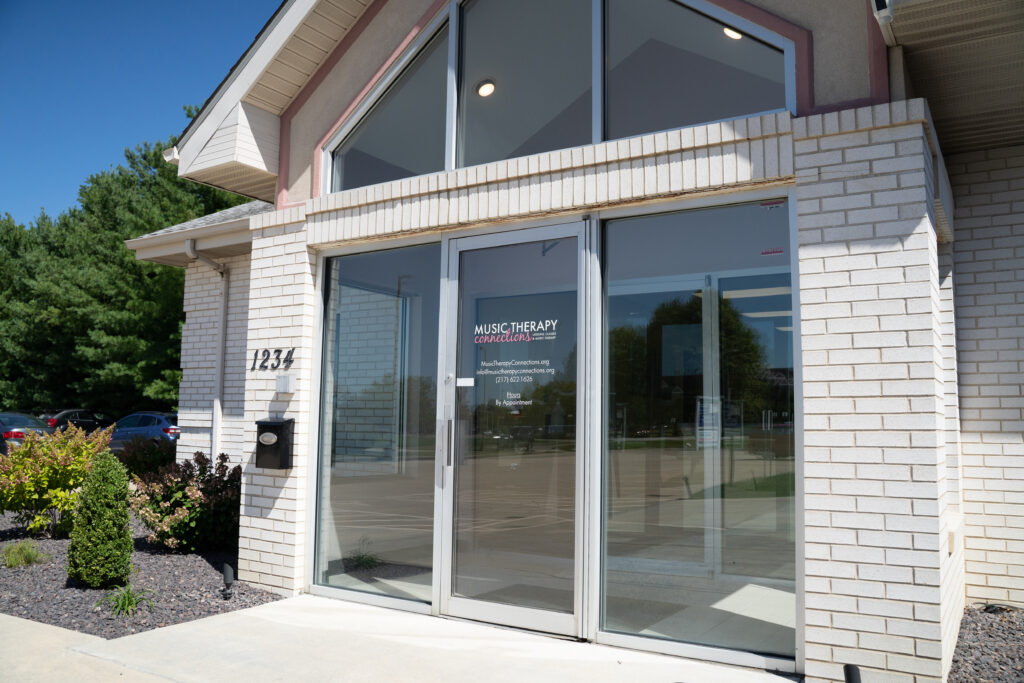by Alisabeth Hopper | Mar 22, 2018 | Resources

I am so excited to share with you that we will be releasing the Functional Sign Language Song Crate CMTE course on Tuesday! In this course, you will learn how to sign nine songs and receive practical applications for use in your sessions.
I use sign language every day with a variety of populations and ages. I want to share with you a few of my favorite stories of the impact of sign language in music therapy.
I was working with an adult with a developmental delay in an assisted living facility who was very emotional and experienced separation anxiety with many staff and people in her life. She had experienced the loss of close family members and her goal was to begin processing those emotions.
We used “Bring on the Rain” by Jo Dee Messina every week. I started by teaching her the sign for “rain”. She quickly caught on and I began adding a few more signs week to week. When she felt defeated, we would refer back to the song. As I taught her sign by sign, we broke down the meaning of the song in a way that was simple and clear.
By the end of that treatment period she had learned the whole song. She was smiling much more and crying much less. It was clear that it had a positive affect on her self-esteem and gave her an opportunity to explore her emotions in a more structured and safe way.

I spend approximately 12 hours of my week at a school for children with autism, cerebral palsy, adverse behaviors which require additional support staff, and in general, multiple disabilities. I serve these children ages 10-22 with group and individual music therapy.
I had a client whom I was seeing in the group and individual setting when we began working on increasing her appropriate self-expression and limiting her self-injurious behaviors (i.e. biting, hitting, pinching, pulling hair, etc.). When asked a question, she would often begin a self-injurious behavior. She was able to speak, but struggled at the time to use that speech as a method for effective self-expression. The client was encouraged in class and other therapies to verbalize, but her growth was slow moving.
When she started individual music therapy sessions, I decided to try something different. I wanted to focus on using sign language as a way to decrease her negative behaviors and then build verbalization on that. We started with simple signs like “hello”, “wait”, “please”, “all done”, “help”, and “more”. She learned these signs much more quickly than I had anticipated and so I began to add more signs like “help”, “eat”, and “bathroom”.
I began signing everything I spoke or sang in her sessions, and she began learning signs more quickly than I could teach her. Soon thereafter, her behaviors dramatically decreased and she was promoted to a life skills classroom where she can receive support to challenge her academic skills and build as much independence as possible.

I regularly use sign language within the early childhood setting to support speech development and social skills in our youngest little ones. They may not always be able to isolate their fingers to perfectly execute the sign, but if they are able to increase self-expression and communication in support of those very important developmental markers, then they are off to a wonderful start on their expressive journey!
I am a believer in the potential for sign language in music therapy. Be on the lookout for the course release early next week to explore how sign language can be an effective tool in your practice!
by Laura Tam | Mar 21, 2018 | Reflections

When you hear the words “Hill Day”, what images come to mind? A celebration of rolling green hills? Marching up an incline with great conviction? To be honest, when I heard about Music Therapy Hill Day a couple months ago, I didn’t have much of a clue either.
Simply put, Music Therapy Hill Day is when music therapists and music therapy advocates come together to represent music therapy and the current needs of the profession.
More importantly, we come together at the state capitol to converse in person with our house representatives and senators. The relationships that are built with those in office have been instrumental in not only having our voices heard, but also in shaping future legislation that could provide greater access to music therapy services for the public from qualified music therapists.
The day before Hill Day finally came around, and here I was, not really sure what to do or what to expect. Having been told to contact my senators and state representatives, I located my district, called my senator from my local district, and within minutes got a call back from his staffer notifying me that my senator carved out time in his schedule to talk with me about music therapy.
With a meeting scheduled with my senator and my fellow MTC music therapists to accompany me to the capitol, I felt a greater sense of resolve and looked forward to what the next day would bring.
As I walked into the capitol building the next morning, I got the chance to meet other music therapists, student music therapists, and music therapy educators who had traveled to Springfield. To me, it was amazing to see so many different individuals from all points in their careers passionately representing music therapy. There were even several, like me, who were attending Hill Day for the first time.

The day was packed with hand-delivering folders of information to Illinois state representatives and senators, personally meeting with Senators about a bill that would implement licensure for music therapists in Illinois, and getting to know other seasoned professionals who were at the forefront of music therapy advocacy and education.
Before I knew it, my small part in laying the groundwork for greater awareness for music therapy in Illinois had come and gone. Rachel, Katey, Alisabeth, and I all had opportunities to share not just about the frequently asked questions regarding music therapy, but specifically how our local Springfield community has benefited from the services we provide here at Music Therapy Connections.

As we all ended the day eating lunch together, I felt a great sense of privilege for being a part of a workplace that cares about its community, the laws that protect our clients, and the future of the music therapy profession in our state.
I learned that advocating for music therapy can just be as simple as making a phone call to those with influence, and that I’m a part of a greater community of music therapists who love what they do!
This time next year when you hear about Hill Day in your state, take the time to reach out to your music therapy community, ask them questions, and see how you can be involved. You’ll be amazed at how much you learn.
by Alisabeth Hopper | Mar 18, 2018 | Services

Every Thursday morning, I have the opportunity to do one of my favorite things. I provide music therapy services at a day care. I absolutely love seeing their little faces light up when they see me walk through the door.
Even our littlest clients can’t wait for me to call their names for music time. We play familiar songs, from traditional to pop covers, and use them to exercise these little ones physically, mentally, and socially. We share, play instruments, read stories, and are always learning new things.

I have always loved working with children. When I was seven, my baby brother was born. I was anxious to help him, teach him, and watch him grow. From the time my brother was born, my mother had a home day care. I would spend time after school and summers helping and playing with the children.
My mother eventually went back to school, and I started babysitting my brother from the time I was eleven every day after school. Although he was still my annoying little brother, for those few hours I enjoyed taking care of him and keeping him safe.
By the time I was fourteen, I had my first job babysitting two children all summer. It was hard work, but they taught me so much about being the best care taker I can be and how to really encourage them to success every day.
It has been almost eleven years since my first official job working with children, and I am still following my passion. Now my baby brother is ready to graduate high school, and I am a music therapist using my love for child development every single day.

Currently my day care students are playing:
- Fruit shakers
- Rhythm sticks
- Bean bags
- Ukulele
They are learning about:
- The names of fruit
- Taking turns
- Body part names
- Memory recall with our book from week to week
- And so much more!

What a wonderful career I have that I am allowed the opportunity to see these little ones grow and learn every day.
To learn more about our music therapy services, email us at info@musictherapyconnections.org
.
by Laura Tam | Mar 15, 2018 | Resources

The moment I found out I passed my board certification exam was glorious. It was as if the entryway into the profession of music therapy had finally been unlocked and I was free to enter.
Even as a beginning music therapy student, I remember being so inpatient. I was eager to have my own clients but often felt bogged down with all the requirements that I had to complete in order to get certified. I didn’t see it back then, but looking back, I see that that the time that I wished would pass by so quickly was put in place so that I could train, make mistakes, learn from those mistakes, repeat the lessons learned, and build confidence.
I’m thankful that these steps exist because not only did it prepare me to enter the workforce, but it also provided my future clients with the assurance that they would consistently receive quality care.
So what exactly are the steps that music therapists take to become board-certified?
All music therapists must complete an approved degree in music therapy, whether it is at the bachelor’s, master’s or doctorate level. After the degree is completed, the next step is to complete an approved internship. After completing internship, the aspiring music therapist is then eligible to sit for the national board certification exam.
After passing the exam, he or she may use the credential “MT-BC” (Music Therapist-Board Certified). Once a music therapist is board-certified, he or she must continue to develop professionally and maintain the ethical and professional standards of the profession.
What happens if I encounter an individual who uses music to help others but does not hold the MT-BC credential?
Music therapy services provided by individuals who do not hold the MT-BC credential have not successfully completed the steps mentioned above, therefore posing great risk of potential harm to their clients and community. To understand why music therapy services might be provided by a non-credentialed in the first place, it is important to consider these factors:
- Misrepresentations of music therapy
Often times the term “music therapy” may not be used in the context of an evidence-based health profession that involves a relationship with a credentialed therapist. Rather, it is often mistakenly used as casual term to label a genre of relaxing music or products related to music and relaxation. When the public is misled to believe that music therapy is just the act of listening to a YouTube video titled “Music Therapy”, it creates confusion as to what board-certified music therapists actually do.
- Related music professions that are similar but not interchangeable with music therapy
Related music professionals, including musicians who perform in hospitals and volunteer musicians who sing in nursing homes, can use music to help others. While it may look like a therapeutic relationship exists between the musician and the client, only a board-certified music therapist is trained to incorporate evidence-based music activities to accomplish individualized goals, study the effect of music on clients, and promote measurable changes in behavior or function.
- Currently, most states do not have regulatory legislation in place at the state level to prevent unqualified individuals from offering music therapy services
Many music therapists are involved in the process of becoming state recognized. This may involve informing legislators of the benefits of music therapy and asking them to pass legislation that involves some or all of the following:
- Protecting the public and vulnerable populations (eg. persons with intellectual or emotional disabilities, or persons coping with physical, mental, or terminal illness) from un-credentialed professionals that may inappropriately use music and cause potential physical, psychological or emotional harm
- Facilitating greater access to music therapy. Agencies and health care providers may be more likely to include music therapy as a service option if music therapy becomes a state recognized and licensed profession. This would help music therapists provide services to more facilities and agencies and would give the public better access to choose music therapy as part of their treatment
What now?
Now that I’ve gone through the whole process of becoming nationally certified, I can appreciate the weight of what I do. Music therapy is an amazing profession that involves rigorous training and the opportunity to make a positive change in other people’s lives. As a board-certified music therapist, I can now be a part of a community of professionals that is passionately dedicated to the well being of their clients.
For the student music therapist, that journey may look like committing to do your best in the daily grind of studying; to the new professional, it may look like researching ways to become more active in supporting music therapy in your community; and for others, it may even look like actively talking with legislators and asking them to create licensure for music therapists in their state.
Wherever you may be, don’t be afraid of taking ownership of your profession. Don’t be afraid to ask yourself how you can continue to grow as a professional, and always remember that what you do matters!
by Alisabeth Hopper | Mar 12, 2018 | Resources
As a music therapist, I am deeply aware of the power and possibility of what intentional music can do for someone’s life. When it comes to working with older adults, I am often tagged in videos like this one below. I want to share with you what I see when I watch this video.
What I love about this video:
This is a wonderful example of how music can invoke memory recall and engage the brain in a different way than most other daily activities. This video is sweet, endearing, and moving. As a music therapist, there is nothing I love more than seeing beautiful moments in music.
What I want you to know:
This type of musical engagement with iPods is not music therapy. Though playing preferred music for residents in a care facility may invoke memory responses, it is missing one thing: intention.
A music therapist offers almost all live music in a therapeutic session during which the therapist can assess and address not only memory, but also motor, speech, social skills and more. Another distinct difference in these programs is that when a resident reaches a point where memory is invoked, the music therapist engages him or her in a way that promotes a positive and safe experience and understands how to encourage memory recall again.
Of course, the final difference is that this program requires administrators to take a training. A board certified-music therapist, on the other hand, is required to complete a bachelors or masters degree in an accredited music therapy program, complete a 1040 hour internship, and then pass a board certification exam and maintain that certification with continuing education.
I am so happy that there are iPod programs to bring music to facilities that may not have access to a music therapist. I absolutely love what I do. I love being able to help people with clinical music therapy. It is my passion and my purpose.
I hope you’ll enjoy this video of music therapy with an older adult.

by Laura Tam | Mar 7, 2018 | Reflections
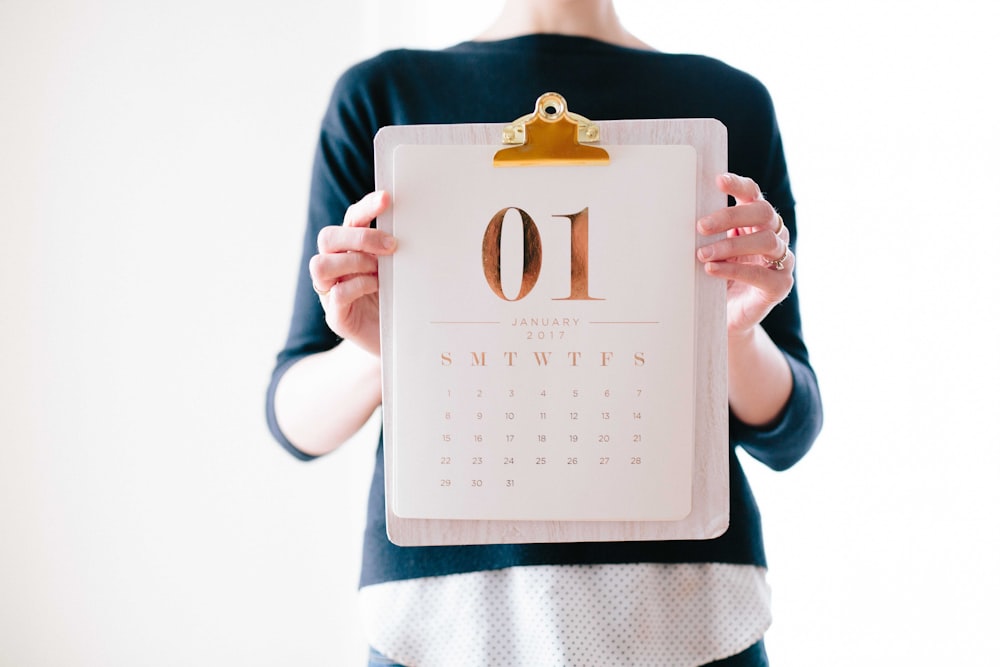
When I walked into Music Therapy Connections exactly one month ago, I was wide-eyed, slightly dazed, and excited to cross the threshold from student to professional. In the past two months a LOT of major life changes occurred: I finished my 6 month internship, got engaged, moved to central IL, and started my first job as a music therapist. It’s been a whirlwind of transitions and adjustments, and I wanted to share an inside view of what my first month at MTC has been like.
Week 1
My first week consisted of an orientation and meeting my students and clients for the first time. As a brand new face at MTC, I was concerned about making a great first impression not only on Katey, Rachel, and Alisabeth, but also on my new clients, students and and parents.
As a therapist, building a relationship with clients is so important to building a foundation for building trust and a safe space for the client to grow and develop. What if I don’t connect with my students? What if I get overwhelmed with the new environment and can’t find my stride right away?
Even in those moments of doubt, I quickly realized that the environment at MTC is one of the most supportive places to grow, to be vulnerable, and to gain support from their team of seasoned and driven music therapists. It was clear that I was in good hands, and I couldn’t wait for what next week would bring.
Week 2
My second week involved leading my first group for older adults at an assisted living facility and also observing Alisabeth’s early childhood music classes for children ages 0-5. I loved seeing how the music engaged each child, facilitated pre-academic skills, and fostered so many positive interactions!
This week I appreciated interacting with clients of all ages and walks of life. The range of different clients that MTC serves is wonderful, and it’s pushed me to expand my song collection and adapt each song to meet the specific needs of each client.
Week 3
A big part of my third week was devoted to advocacy and reaching out to local businesses to talk about music therapy. This involved calling facilities, meeting with administrators and even demonstrating examples of a typical music therapy session. Because music therapy is an emerging profession, advocating for the evidence-based efficacy of music therapy is a huge part of what music therapists do.
This experience was a huge learning experience. I didn’t always have all the answers and I experienced several rejections from various individuals, but I’m glad that I gained opportunities to advocate for music therapy and insight into the small business aspects of the profession.
Week 4
Week four was special to me because I recently became board certified, and I also got to share a special moment with an older client of mine. In previous sessions, I had noticed that this client often didn’t sing along with me or actively play the instruments that were given to her. But this week, as I played and sang “Blue Suede Shoes”, her eyes lit up, she smiled and began to dance along to the beat while pointing to her bright yellow socks.
It was such a joy to see how this song became an opportunity for her to express herself and engage with others around her. It was a privilege to share in that moment, and it definitely ended my week on a good note!
This first month has taken me so many places, from figuring out many new responsibilities to developing relationships with each new client and student. Today in our weekly music therapist supervision meeting, Katey asked me to share how I felt like on day one versus how I feel today.
Honestly, I’m still in the process of working through my challenges and fears by trial and error, but I’m glad that MTC is the perfect place for me to grow. As the music therapy team all sat in a circle in matching bean chairs, Alisabeth stated such a comforting truth: “We’re just… this big circle that just supports each other”. As I close out this first month, I couldn’t agree more.
by Laura Tam | Feb 28, 2018 | Reflections

This past Saturday, I passed the board certification exam for music therapists — the final step in becoming a board certified music therapist. Looking back, it has been quite a journey with many bumps and road blocks along the way.
Nevertheless, I am so thankful to share this journey with you! In fact, I had never even heard about music therapy until I was preparing to apply for college, and even then, I dismissed it as something that was too eccentric. So, what changed and how did I end up where I am today?
In this blog post, I want to share some moments in my life that have caused me to do much soul-searching and the people in my life who have supported me every step of the way.
Part I. Life as an Illini
I began my college experience as a french horn performance major at the University of Illinois at Urbana-Champaign. I did not have a lot of prior performance experience, but what I loved was finding a community to fine tune and develop my skills as a musician.
As time went on, however, I struggled with mastering technique and increasingly felt more trapped in a degree that felt unreachable. By the end of my sophomore year, my horn professor sensed a lot of internal conflict and had a pivotal conversation with me that not only validated the fact that it was completely okay to not pursue performance, but also opened the door for me to explore other careers that would be more meaningful to me. I was so thankful that my horn professor fully supported me, and it didn’t hurt that his wife was also a music therapist!
Part II. Switching Majors and Finding a Direction to Follow
After that conversation with my horn professor, I felt like I had been given a second chance to pursue a field in music that gave me joy and meaning. After doing some research, I found music therapy to be this unique field where performance was not the main goal, but rather, the goal was to help other people!
That spring break of my sophomore year, I told my parents that I wanted to change my major and pursue music therapy. It was hard telling them, but I knew it was the right thing for me. They fully supported me granted I find out more about what a career in music therapy looked like. Thus began my dream of becoming a music therapist.
I started googling music therapy and contacting local music therapists to ask them all the questions I had: What classes should I take to prepare for a music therapy degree? Should I transfer to another school or stay and finish my undergraduate degree? What does a typical music therapist do every day?
One of the best conversations that I had was with none other than Rachel Rambach, who took the time to Skype with me, answer my questions, and share her own experiences, which happened to be quite similar to mine. Who knew that Rachel would not only help solidify my desire to pursue music therapy, but also become my very first employer as a music therapist five years down the line?
Part III. Pressing on Towards the Goal
While I knew music therapy was what I wanted to do, it was important to me to finish my music degree at the University of Illinois (I planned to apply to graduate school to earn an equivalency Master’s degree in music therapy in the future).
During this time, I immersed myself in classes focused on psychology, human development and speech and language disorders. I became a camp counselor at Bay Cliff Health Camp that provided music therapy, speech therapy, occupational therapy, and physical therapy for children with physical disabilities. I also continued to keep up with Rachel’s Listen & Learn blog and listen to her podcasts.
As I entered my graduate music therapy studies at Illinois State University and finished out my degree and internship at Helping Hand Center in Countryside, IL, I developed skills in working with various types of clients, grew in knowledge, and grew in my capacity to be teachable and give my best.
Since graduating with my Master’s in music therapy, I have had the privilege of joining Music Therapy Connections as a music therapist, alongside my mentors Rachel, Katey, and Alisabeth.

Visiting Rachel at Music Therapy Connections as a first year graduate student. It was the first time meeting her in person and observing her Listen and Learn Class
Recently I was asked to share how I feel now that I’ve passed my certification. As I reflect on the myriad ways in which important life moments, people, and my own growth have shaped my journey, I can only say that I am thankful.
This certification is a reflection of the blessings in my life thus far, but it is not in itself my greatest prize; it is only a vehicle for many amazing things to come and a means for others to be impacted meaningfully through music.
Thanks for reading! I am SO thankful, relieved, and excited for the future as I enter the workforce as Laura Tam, MM, MT-BC.
by Alisabeth Hopper | Feb 23, 2018 | Resources

I am so excited to share with you what I have been working on for the past few months! When I created the Functional Sign Language for Music Therapists CMTE course, I intended to teach need-to-know signs for professionals. After completing the course, though, I felt that there was something missing. I wanted to share with you how I break down and sign to songs and dive into how I use sign language to address the goals of my clients.
From this came the idea for our new resource: the Functional Sign Language Song Crate! This song crate is your go-to resource for how to use sign language in any song! You will learn ten songs that are suitable for clients in childhood through adulthood and explore how sign language can be interwoven with the goals and growth of your clients!

I am passionate about what sign language can do because I have seen it used as a highly effective tool for reaching motor, social, emotional, and communication goals for people of all ages and abilities!
Take a look at an official sneak peek at the Functional Sign Language Song Crate, coming soon!
Is there a song you would like to learn how to sign? Head over to our Facebook group and cast your vote for a song we should include in the song crate!
by Laura Tam | Feb 20, 2018 | Services
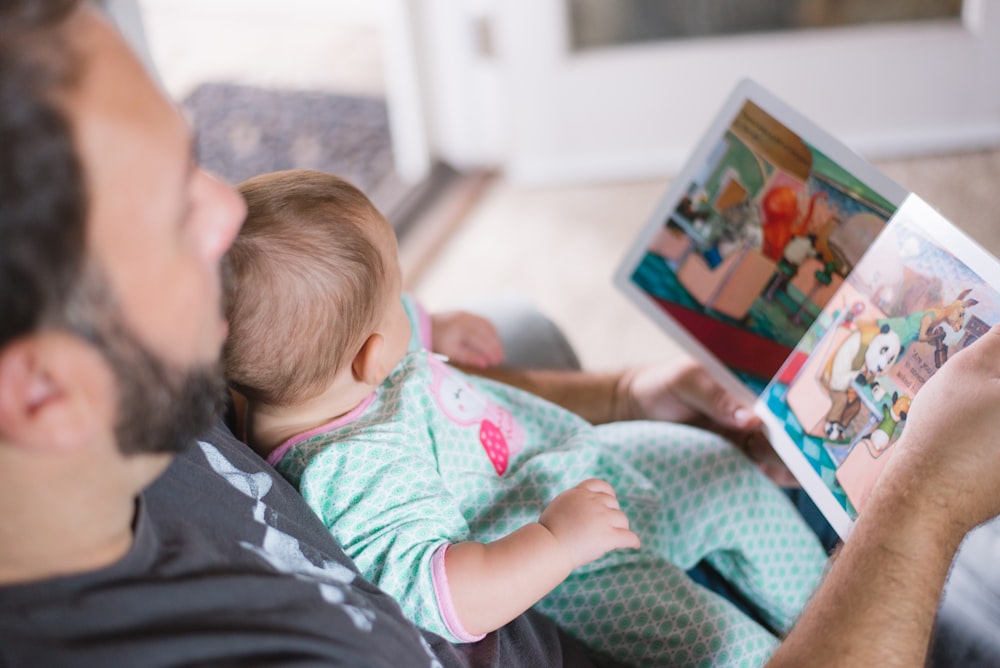
One of of the most frequently asked questions I receive when people ask me about music therapy is, Okay, I understand that you use music to help people, but what does that actually look like? I always reply, It depends on the specific goal(s) that I am addressing.
Goals within a music therapy context can be defined by the following:
- Goals areas are determined by determining each client’s strengths and areas of need, including: how the individual moves, communicates, interacts with others, regulates their emotions, processes information, and copes with a medical condition.
- Goals are individualized. Goals are created to address an individual’s unique sets of needs and strengths.
- Goals can be long term or short term. Examples of short term goals may include decreasing signs of distress (i.e. crying) in a premature infant, while an example of a long term goal might include increasing a client’s perceived self esteem over time.
Now that you know several components of goals, allow me to share how I might address various goals in some of the different groups that Music Therapy Connections serves:
Early Childhood
A goal area may include increasing vocal noises.
This goal is important because increasing vocalization is an important pre-language skill for very young children.
A music therapist may compose a song that encourages early childhood children to produce the “ma” sound within the song.
School-Aged Children
A goal area may include increasing the skill of following directions
This goal is important because following directions is an important skill for children to master in situations where safety directions need to be followed quickly.
A music therapist may instruct children to play instruments when they hear the word “go” and stop playing when they hear the word “stop”.
Older Adults
A goal area may include increasing social interaction.
This goal is important because it is important for older adults to maintain meaningful relationships as their social circle decreases over time.
A music therapist may sing a familiar song to the individual while instructing the older adult’s caregiver to hold the individual’s hand for the duration of the song.
If you’ve ever had questions about what music therapy looks like, I hope that you found this information helpful! The amazing thing about music therapy is that it can benefit anyone because everyone has different strengths and needs.
In the upcoming week, I hope to share some of my own personal goals and my progress towards them. Thanks for reading! If you know a loved one who may benefit from music therapy or if you want to know more, email us at info@musictherapyconnections.org. You can also register for services or music lessons below!

by Laura Tam | Feb 19, 2018 | Lessons, Services

A couple years ago for a school assignment, I was asked to design a survey in which I asked anonymous individuals for the various reasons why they listened to music. Out of fifty individuals who took the survey, top responses included:
- listening to music as background sound during everyday activities
- listening to music as entertainment
- listening to music as motivation for everyday activities
- listening to music to release built up tension
While this survey was designed for a research methods class and may not be representative of the general population at large, it did show that music was listened to and utilized for a variety of different reasons!
For myself, music provides a creative outlet to express my inner thoughts and make connections with others that otherwise would have been difficult to verbalize. It’s that powerful connection I feel with I’m singing a song together with a close friend and we instantly make eye contact when a meaningful lyric is sung, or the affirmation from certain lyrics in songs that seem to clarify exactly what I had been having difficulty processing in mind.
Music impacts individuals in many unique ways, so why not ask yourself how music impacts your life! Did you know that at MTC, we specialize in making music an enriching experience for anyone, whether it be through music lessons, adaptive lessons, or music therapy? Take a minute and explore our service options. Whether it’s registering for lessons or music therapy services, I hope that you’ll find meaningful ways music can shape your life in every season!
All the best,
Laura
For more information about music therapy services or lessons, email us at info@musictherapyconnections.org or register below!




